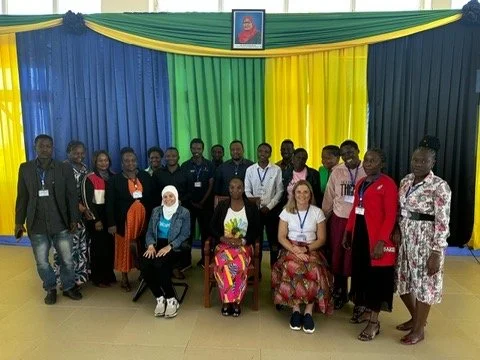EECC Training Expands in Songwe – Vwawa District Hospital Aims for 100% Coverage
This May and June, a major step forward is underway in the roll-out of Essential Emergency and Critical Care (EECC) in Tanzania. As part of the EECCiT programme (EECC in Tanzania), seven in-person training courses are being delivered across Songwe region—equipping healthcare workers with the skills to save lives using simple, effective treatments.
At the heart of this expansion is Vwawa District Hospital, where we’re aiming for something ambitious: 100% of acute care staff trained in EECC. This makes Vwawa the only hospital in Tanzania being developed as an “EECC centre of excellence.”
-
DescriptionEssential Emergency and Critical Care (EECC) is a package of low-cost, life-saving interventions that should be available to all critically ill patients, in all hospitals. These include:
Monitoring vital signs
Giving oxygen to patients in respiratory distress
Providing intravenous fluids to treat shock
Managing blocked airways and unconsciousness
Preventing infections and relieving pain
Effective Communication
These are basic, essential actions—but when missed, patients can quickly deteriorate. EECC helps healthcare workers spot danger signs early and respond effectively. text goes here
A Practical, In-Person Training
The new three-days on-site EECC training course was developed in 2024-2025 as part of the collaborative programme EECC in Tanzania (EECCiT) by Muhimbili University of Health and Allied Sciences (MUHAS), United Nations International Children Emergency Fund (UNICEF) Tanzania, the Tanzanian Ministry of Health and President’s Office for Regional Administration and Local Government, the Zanzibar Ministry of Health, and colleagues in health facilities across Tanzania, with the financial support of Global Affairs Canada through the “CanGive” initiative.
Course attendees practicing EECC skills in the classroom
It focuses on recognising and treating critical illness in any hospital setting. It is freely available at www.eeccglobal.org/training, and is designed to be practical and hands-on.
Key topics include:
Early identification of critical illness using vital signs
Airway management, including clearing obstructions and using simple devices
Breathing support, such as oxygen therapy and assisted ventilation
Circulation management, including stopping bleeding and fluid resuscitation
Responding to unconsciousness, including seizure and glucose management
Other essential care, like infection prevention and early mobilisation
The courses are designed for all levels of clinicians and nurses working in acute care.
Why Songwe—and Why Vwawa?
EECC training is being rolled out across Zanzibar and five regions in mainland Tanzania. Seven training sessions are planned in Songwe during May and June.
In most regions, either 40% or 80% of healthcare workers in acute care are being trained. But in Vwawa District Hospital, the aim is for every single acute healthcare worker—100%—to complete the training.
Vwawa is also receiving support to make sure EECC is fully implemented. This includes supervision, systems strengthening, and the focus needed to ensure care is delivered reliably and consistently.
Why such a focus on one hospital? Because creating a place where EECC is done to the highest standard can serve as both a teaching hub and a research site. It allows for data collection around both cost and cost-effectiveness. It also acts as a hub for surrounding satellite facilities to learn and benefit from. It shows what’s possible when care is done right—and gives others a chance to learn from it.
Attendees and trainers at one of the in-person training courses
A National Commitment
This training is part of a bigger vision: the Tanzanian government’s National Strategic Plan for EECC. The goal is to make EECC a routine part of hospital care, so that every patient—no matter where they are—gets the basic care they need to survive critical illness.
EECC isn’t about high-tech equipment. It’s about making sure patients are monitored, given oxygen, treated for shock, and cared for with attention and urgency. When done well, it saves lives.
Find Out More
If you’re a healthcare worker, educator, or policymaker, you can access the full EECC training materials for free at www.eeccglobal.org/training. The resources are open to all and designed to be used in any setting.
As training continues across Songwe, we’re excited to see how these efforts will improve patient care and outcomes.


